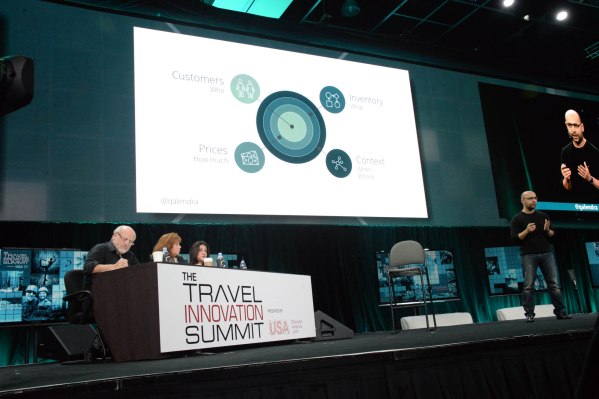Qalendra, a Seattle-based company with an engineering team in Bucharest, Romania, wants to automate travel research. The premise being that most travel sites only let you search by price and destination, while consumers typically fall back on TripAdvisor user-generated reviews to get an idea of whether or not a particular destination is suitable.
That misses out a lot of data that could potentially help ensure you never book a bad trip again — data that Qalendra thinks machines can make better sense of than any individual human ever could.
“It’s easy for anyone to compare prices and book a bad trip,” says Qalendra founder and CEO Cristian Munteanu.”In March this year, the largest online travel agencies were selling ski packages with 40% off to resorts that were off season. Practically, they were sending skiers to where there was no snow.”
To solve this problem, Qalendra has developed technology that ingests data from numerous sources to compare destinations and identify where the best conditions for vacations and activities are up to 4 months in advance.
In practice — and sticking with the skiing example — you could search for a skiing trip in one destination and the startup’s algorithms would tell you that you’re better off going someplace else this time of year if you actually want snow.
“In other words, we automate travel research, do it orders of magnitude better than any human expert, and deliver it instantly on any device,” says Munteanu.
Or, to think of it another way, he describes the young startup as ‘TripAdvisor based on data not reviews’. “Half a billion people visit TripAdvisor annually and plan their vacations based on content that is often unreliable, sometimes contradictory and always static. At Qalendra, we believe that given the choice, just as many would rely on data”.
However, Qalendra isn’t targeting consumers directly. Instead it’s very much a B2B company after pivoting away from an original consumer-facing idea and offers its tech via an API to online travel agencies and travel meta-search engines and the like.
“Travel companies use our technology to enhance search, distribution and revenue management,” says Munteanu. “Just imagine an online travel agency that can keep all visitors on their website and help them make an informed decision and book in one place. Or an aggregator that can rank trips not only on price but on quality. The applications for what we do are many.”
Meanwhile, Munteanu says Qalendra, which launched just a few weeks ago, is currently without a direct competitor, but doesn’t believe that will last long once the idea of automated travel research has been proven. In time, he thinks incumbent travel companies will consider developing their own solution but won’t want to open it up to competitors and won’t find it easy.
“The costs will be high, the talent difficult to find, maintenance a nightmare, so using our solution will prove a much better choice. It is not competition that keeps us awake at night,” he adds.
